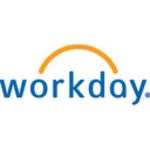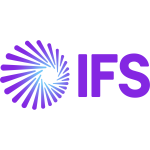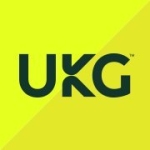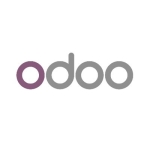What is our primary use case?
We are a large company using every function of Oracle E-Business Suite, such as human capital management, financial management, manufacturing, plant maintenance, and many more. We've implemented almost thirty-seven modules of Oracle E-Business Suite in our organization.
How has it helped my organization?
Oracle E-Business Suite improved my organization by automating every function and integrating all departments. For example, HR is integrated with Finance through the payroll module. Inventory is integrated with Finance through the inventory module. Plant maintenance is integrated with the stores and spheres, so there's a single source of truth across the organization. There's no need to maintain separate databases, software, or functions within the organization through Oracle E-Business Suite.
My organization uses the same source of truth, so there's less hassle and more accurate information, making decision-making easier because of this solution.
What is most valuable?
I like the automation and integration features of Oracle E-Business Suite.
What needs improvement?
A downside of Oracle E-Business Suite is its interface because it's less user-friendly than the latest cloud solutions.
As an organization, Oracle now has more interest in cloud applications, so nowadays, it doesn't focus much on Oracle E-Business Suite, an on-premises solution, so this is another downside.
In the next release of the solution, I want to see an enhanced GUI so that it can attract more users and for Oracle to focus more on Oracle E-Business Suite and make it more user-friendly.
Buyer's Guide
Oracle E-Business Suite
January 2026
Learn what your peers think about Oracle E-Business Suite. Get advice and tips from experienced pros sharing their opinions. Updated: January 2026.
881,757 professionals have used our research since 2012.
For how long have I used the solution?
I've been using Oracle E-Business Suite for twelve years.
What do I think about the stability of the solution?
Oracle E-Business Suite is pretty stable, and I'd rate it as nine out of ten, stability-wise.
What do I think about the scalability of the solution?
Oracle E-Business Suite is a highly scalable solution, and I'd rate its scalability as ten out of ten.
How are customer service and support?
Oracle E-Business Suite technical support is a seven out of ten for me.
How would you rate customer service and support?
Which solution did I use previously and why did I switch?
We've used custom and in-house solutions before using Oracle E-Business Suite. Still, because of the benefits, scalability, integration, and support we got from the solution, we went with Oracle E-Business Suite.
How was the initial setup?
As Oracle E-Business Suite is an ERP system, it has a complex implementation process. It's unlike any other software you can install and start using immediately. The system requires installation, then configuration, so depending on the complexity of the business, it takes around three to six months to configure and run it within the organization.
Installing the software onto the server, for example, isn't a matter of one to two days maximum. The steps to deploy Oracle E-Business Suite depend on your business requirement, how you map your business requirements into the system, and how you want the system to operate according to your needs. It varies based on the complexity of your business where Oracle E-Business Suite would be implemented.
What about the implementation team?
The first time Oracle E-Business Suite was implemented, configured, and integrated with our systems, we worked with a third party who was an expert, so we won't run into cost overruns.
What was our ROI?
The digitization projects we implemented in multiple areas resulted in millions of savings because Oracle E-Business Suite helped keep queries simpler, so there's ROI from the solution.
My organization has been using the solution for the past twelve years, so I'm sure it paid off, but I have yet to calculate the ROI.
What's my experience with pricing, setup cost, and licensing?
Pricing for Oracle E-Business Suite is seven out of ten. You must pay extra for maintenance and technical support, apart from standard license fees.
Which other solutions did I evaluate?
Since we've been using Oracle E-Business Suite for twelve years, we've evaluated different solutions from time to time but eventually chose SAP as our primary solution.
What other advice do I have?
I'm using the latest version of Oracle E-Business Suite.
Two or three people can maintain Oracle E-Business Suite for a small organization. Still, for a vast implementation, for example, within my organization, about twenty-five to thirty people handle the maintenance of the solution.
Around two thousand to three thousand people use Oracle E-Business Suite within the organization.
All departments use the solution, whether Presales, Sales, Finance, Plant Maintenance, HR, Compensation, Payroll, etc.
I recommend Oracle E-Business Suite, but since the newest technology is now on the cloud, I wonder if people would be interested in an on-premise solution.
I'd rate the solution eight out of ten because the GUI needs improvement. I would give Oracle E-Business Suite a nine or ten if its GUI were improved.
My company is simply an Oracle customer.
Disclosure: My company does not have a business relationship with this vendor other than being a customer.

















